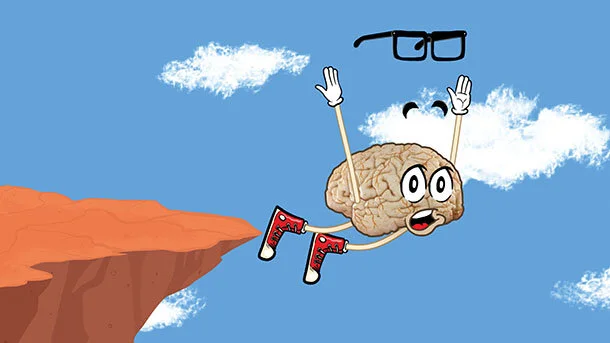No quick fix to maintaining brain health
by Pam Leland for Daily Local:If you watch much television you have probably seen a commercial for Lumosity – a brain game website that has more than 60 million subscribers in 180 countries. If not Lumosity, you may have seen advertisements for one of the other well-known sites, such as Happy Neuron or Fit Brains.And maybe you are like me: fearful of losing my mental capacity and looking for some guarantee that I will never get dementia. I see these commercials and am tempted to sign up (for a fee, of course) and play their games.But 69 scientists have told me that I need not bother and should keep my money.On Oct. 20, 2014, 69 scientists from across North American and Europe issued a lengthy statement calling into question the research-based claims of these brain-game companies/sites. The statement begins as follows:“As the baby boomers enter their golden years with mounting concerns about the potential loss of cognitive abilities, markets are responding with products promising to allay anxieties about potential decline. Computer-based cognitive-training software — popularly known as brain games — claim a growing share of the marketplace. The promotion of these products reassures and entices a worried public. …“However, as the findings accumulate, compelling evidence of general and enduring positive effects on the way people’s minds and brains age has remained elusive. …“Many scientists cringe at exuberant advertisements claiming improvements in the speed and efficiency of cognitive processing and dramatic gains in ‘intelligence,’ in particular when these appear in otherwise trusted news sources. In the judgment of the signatories below, exaggerated and misleading claims exploit the anxiety of adults facing old age for commercial purposes. Perhaps the most pernicious claim, devoid of any scientifically credible evidence, is that brain games prevent or reverse Alzheimer’s disease.”These scientists recognize the value — and importance — of remaining cognitively engaged as you age. There is value in thinking, learning and exposing yourself to new ideas and experiences. However, they are in agreement that these brain games are not the magic bullet to reducing dementia that the industry suggests.The best evidence of maintaining brain health is nothing that most of us haven’t heard numerous times. The answer to better brain health is a healthy, engaged lifestyle. Simply put: We need to eat well and exercise!Your brain needs nutrientsA healthy diet doesn’t just benefit your heart (and weight). Research into brain functioning has shown that you can increase your chances of maintaining a healthy brain if you include these foods in your daily eating routine:• Blueberries – a tasty superfood that has been shown to improve learning capacity and motor skills. One cup a day is recommended.• Wild Salmon – rich in omega-3 essential fatty acids essential for good brain functioning. Eat a 4-ounce serving two or three times each week.• Nuts and Seeds – rich in vitamin E. Higher levels of vitamin E have been shown to correspond to less decline in cognitive abilities. An ounce a day of either salted or unsalted nuts is recommended.• Avocados – another superfood. Acknowledge its high calories by eating ¼ to ½ of an avocado as an occasional side dish.• Whole Grains – reduce the risk of heart disease, which allows greater blood flow to the brain.• Beans – eat ½ cup every day to help stabilize glucose (blood sugar) levels.• Pomegranate Juice, Citrus Fruits and Colorful Vegetables – offer powerful antioxidant benefits.• Freshly Brewed Tea – a modest amount of caffeine can boost brain power by enhancing memory, focus and mood.• Dark Chocolate – has powerful antioxidant properties which can enhance focus and concentration.Your brain needs oxygenIn a 2012 article for the New York Times Magazine, Gretchen Reynolds reported the following:“For more than a decade, neuroscientists and physiologists have been gathering evidence of the beneficial relationship between exercise and brainpower. But the newest findings make it clear that this isn’t just a relationship; it is the relationship. Using sophisticated technologies to examine the workings of individual neurons — and the makeup of brain matter itself — scientists in just the past few months have discovered that exercise appears to build a brain that resists physical shrinkage and enhance cognitive flexibility.”Simply put, exercise seems to slow – and possibly reverse – the brain’s physical decay that naturally occurs with aging. Scientists have also discovered that exercise “jump-starts” the creation of new brain cells.Moreover, this need not be a rigorous exercise program. Regular walking can bring the benefits of exercise – and oxygen – to the brain.Maintaining our brain health should be a priority for all of us. And brain health certainly includes active mental engagement. So go ahead and enjoy the “brain games” on one of any number of web sites, but just remember that the best medicine for a healthy brain is the time-tested medicine – eating well and exercise. Source: http://bit.ly/1z5Y0aq

